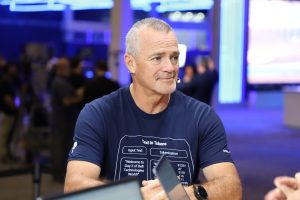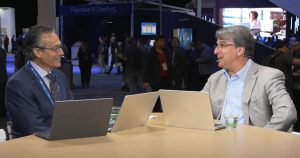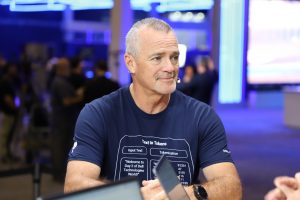Dell Rethinks AI Infrastructure for the Next Industrial Revolution
Artificial intelligence is not just transforming workflows — it’s igniting the next industrial revolution. As enterprises race to adopt AI at scale, the pressure is on to rethink how infrastructure is built, optimized, and deployed for a new era of intelligent systems.
Dell Technologies Inc. is staying ahead of the development curve by implementing capabilities such as global supply chain agility, cutting-edge custom clusters, and real-world enterprise AI applications. According to Jeff Clarke, chief operating officer and vice chairman of Dell Technologies, the company has “retooled our engineering capability” to meet the demands of AI workloads.

Reinventing Engineering for AI Demands
Dell has fundamentally overhauled its engineering processes to meet the demands of AI workloads. The company now builds AI-specific architectures that scale rapidly, enabling them to go from customer collaboration to large-scale GPU cluster deployment in under six months. This agility has led to breakthroughs such as being first to market with Nvidia’s GB200 NVL72 and Hopper platforms.
“We’ve committed to engineering to solve these massive solutions problems, because we’re not building a single computer; we’re hooking up lots of computers to act as a single computer and to interact with one another,” Clarke explained during an exclusive interview with theCUBE at Dell Technologies World.
The Scale of AI’s Computational Needs
The scale of AI’s computational needs for the future is staggering. Estimates project a leap from 25 trillion tokens in 2024 to 35 trillion by 2028. This sharp uptick is driven by the rise of agentic systems and reasoning engines that multiply demand for compute and data infrastructure.

To absorb the data demands from the unfolding industrial revolution, Dell is building “token factories” — hyper-efficient, high-performance compute clusters capable of processing the deluge of data. “The truth is most data is created out in the wild… What we see and continue to believe is that the AI migrates to where the data is created to be dealt with,” Clarke said.
Conclusion
Dell’s reworked AI strategy focuses on building infrastructure that can support the rapidly growing demands of AI applications. By reinventing its engineering processes and creating AI-specific architectures, Dell is positioning itself at the forefront of the AI-driven industrial revolution.


